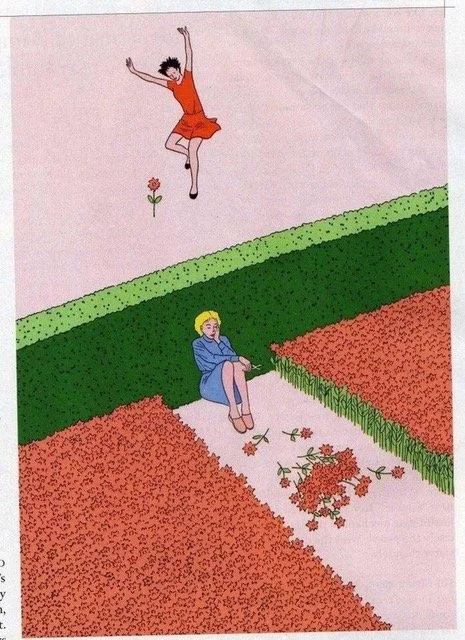What More Do We Want
Dear friends,
As I have written before, the major human delusion and desire is to get everything just right—and then freeze things so they do not change. We imagine that if we just try hard enough we can somehow enter that Promised Land and stay there. Good luck with that!
East West is in the heart of the Silicon Valley. In many ways the Valley is the peak of what many want: Great weather, beautiful surroundings within minutes, low crime rate, multi-cultural, major airports nearby, energetic innovative people, etc. etc.
This has taken people as far as it can and still not enough. I would not say that people here are generally happier than people elsewhere. So then, what is it?
Yogananda said, "All conditions are neutral. It is our response to conditions that determines whether they are good or bad." In circumstances that are only slightly disturbing we can see how this works. For example, some folks are extremely sensitive to criticism. If someone so much as raises an eyebrow at them, they feel a sting for days or weeks... or longer. Is it the glance that is "bad" or perhaps the person has something to learn about not being so subject to the thoughts and feelings of others? In fact, why should we be disturbed even when someone is directly harsh with us?
The mind of course goes to extremes, as in "Do you mean to tell me that if..." It then poses some horrible situation. But rather than focusing on some extreme example, let's note the thousands of small things that happen every day where we can more clearly see it is our reaction that creates the problem, and not the situation itself.
We started with the idea that even the best of environments or circumstances can leave us dissatisfied. I have posted the image at the top before, but it does so well at illustrating this idea I felt to use it again. Someone with three million dollars who loses two thirds of it feels terrible. Someone with very little who finds one million dollars is elated. They are in the identical situation, so it is clearly not the situation that causes the feelings.
Let us each take joy in what is, accepting everything as a gift from Spirit. When it is challenging we can be grateful for the lesson being offered. When enjoyable, for the blessing itself. We can strive to build what Yogananda called the portable paradise within, that remains unassailable from the storms and winds of life.
Blessings,
David G., manager
For the staff at East West

